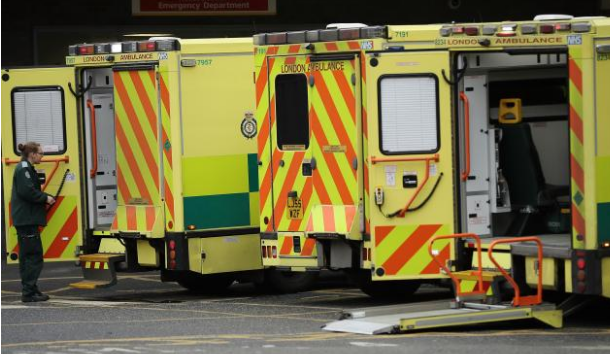
Figures from NHS England released today back up the concerns of staff on the frontline that conditions are deteriorating in emergency departments and trusts across the UK.
The report shows that due to underfunding and neglect the government are forcing the NHS to repeat significant surgical cancellations. During the quarter ending 31st December 2018, 20,145 operations were cancelled at the last minute for non-clinical reasons. Of these cancellations 1,666 (8.3%) of patients were still not treated within 28 days of the cancellation. In the same period in 2017/18, 1,596 (7.3%) of patients were not treated within 28 days so this figure shows a clear deterioration in access to treatment and highlights how the government has failed to learn the lessons of the previous winter where 50,000 operations were put on hold. Indeed at a health committee meeting last year health ministers admitted they could not rule out a repeat of these circumstances.
NHS providers also reported 1,710 breaches of the Mixed Sex Accommodation guidance in relation to NHS patients in sleeping accommodation in England during December 2018, compared to 1,470 in December 2017. 1,686 (98.6%) of all the breaches that occurred were in Acute Trusts. Patients are therefore increasingly accommodated in situations that are less dignified during their hospital stay due to the lack of beds in the NHS. Since 2010 around 15,000 hospital beds have been cut by successive governments which has a significant impact in many areas.
Waiting times are worse than ever
Waiting times are deteriorating for patients across the board, and the 4-hour A&E target continues to slip. The number of people admitted, transferred or discharged within 4 hours was 1.78m – 84.4% of the total. This is a 4.4% increase on the equivalent figure for January 2018 (1.70m seen within 4 hours) and the worst it has been since these records began ten years ago. There were 83,519 patients waiting more than 4 hours from decision to admit to admission (2.8% higher than January 2018) which means patients are lying on trolleys or sitting on chairs in emergency departments instead of occupying a hospital bed. This government have not learned the lessons from previous winter crises as seriously ill patients continue to experience undignified and potentially life-threatening circumstances due to a lack of capacity in the system.
Yet the answer is not to relax the target, but to fund the NHS properly and to reinstate its beds. Recently doctors at the Royal College of Emergency Medicine sent a letter protesting at NHS England’s desire to relax the 4-hour A&E target saying it could have “a near- catastrophic impact on patient safety” and it is not a viable solution to alleviate winter pressures as it will simply mask the true issues of understaffing.
It is not just in the emergency department that waiting tines are continuing to suffer. The number of patients on the waiting list for non-urgent treatment who were waiting over 18 weeks between December 2017 and December 2018 rose from 445,000 to 556,000, the highest in 10 years. Waiting lists are now almost out of control which places further pressure on our already massively stretched primary care services, as patients make additional appointments to manage conditions whilst waiting to be admitted.
Ambulance response times
The mean average response times across England in January 2019 were 7 minutes 8 seconds for Category 1, and 22 minutes 58 seconds for Category 2. Both category averages failed to meet their respective standards of 7 minutes and 18 minutes which is potentially very dangerous, as in an emergency situation minutes can cost lives. Indeed, this figure is before one considers just how long emergency vehicles may have to wait to gain admittance to the hospital with regular reports of ambulances literally queuing round the block due to a lack of capacity.
This situation is not sustainable
This winter we have yet again seen patients die on trolleys awaiting treatment because staff in A&E were too overwhelmed with the volume of work to care for them, and 11 trusts have recently reported being at almost 100% occupancy whilst struggling to cope. All of this before flu and significant adverse weather has significantly impacted. The government must stop ignoring the critical and dangerous issues within our health service and do what is needed to ensure that these situations are not normalised.
Keep Our NHS Public’s Co-chair and retired paediatrician Dr Tony O’Sullivan says:
“The worst of this winter’s freeze is still to come and the NHS is predictably under great strain again. Deaths are being reported during delayed handover from paramedics to beleaguered A&E staff. Hospitals are far too close to 100% of beds being filled – this spells danger once again but Brexit is displacing what would usually by now be headline news. We need transformation in government policy – to seriously fund the NHS and look after its staff. Not an un-costed NHS Long Term Plan lacking any staffing strategy and threatening top-down organisational disruption. Are Matt Hancock and Simon Stevens the new Emperors fiddling while the NHS burns?”
The NHS is in the grip of yet another avoidable crisis caused by a sustained lack of funding over the last 9 years. The NHS Long Term Plan recently announced fails to address any kind of workforce strategy and does not commit enough funding to account for a historic deficit in NHS finances. The NHS urgently requires an injection of emergency funding to avoid more needless deaths, improve waiting times and to prevent a repeat of the blanket cancellations of surgery which this government have not ruled out. The public, and the staff in our NHS deserve better.
Samantha Wathen, Press and Media Officer for Keep Our NHS Public


Leave a Reply